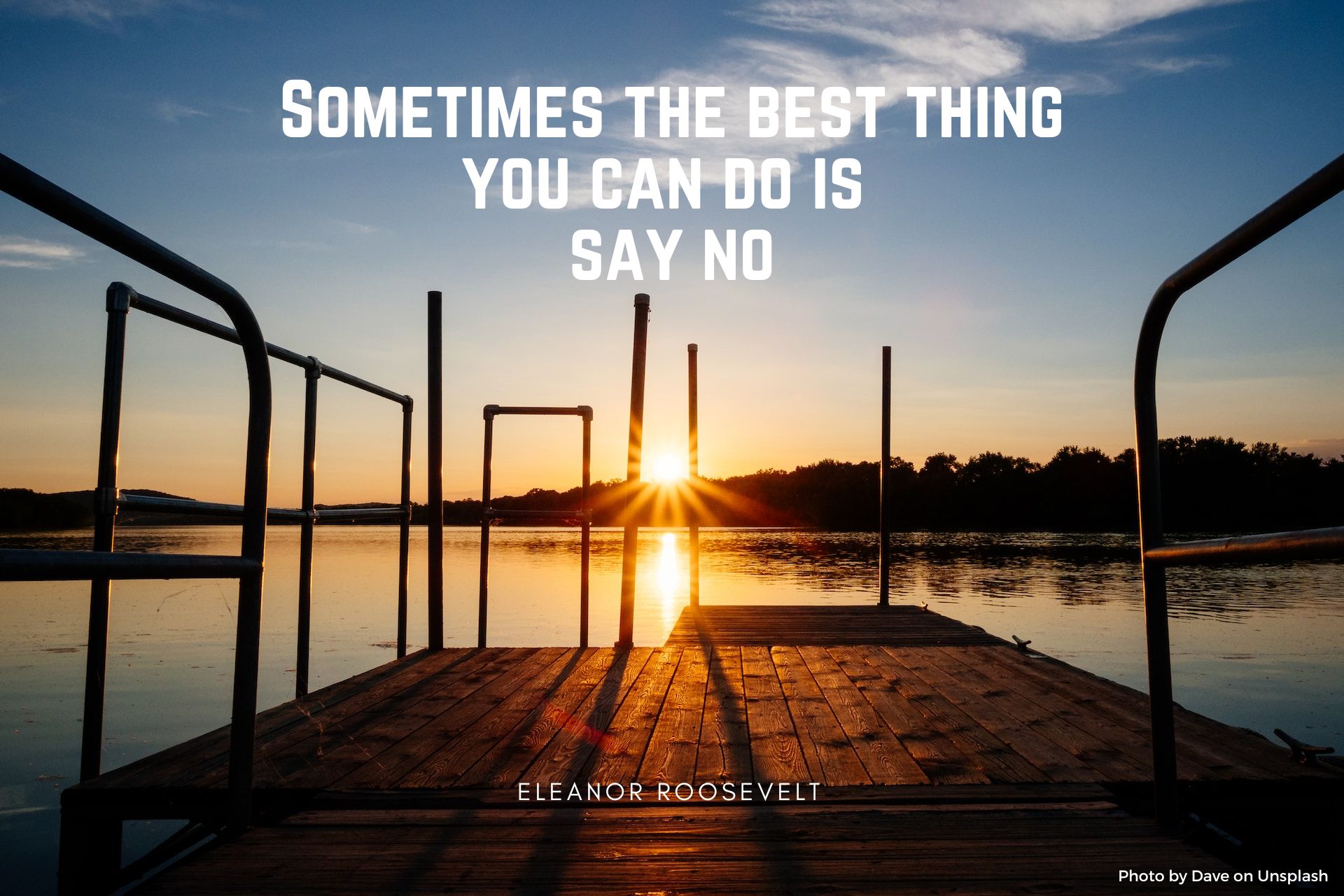If you say yes, you can say no. And that's when it comes to taking on something or going along with something that you're not 100 percent convinced of.
Sometimes I've thought that what we're doing there fits my concept, and I've said yes. Then I realized it didn't fit. How long does it take for the liberating no to come? Sometimes I wait too long.
Of course, it's smarter to say no early on. "No, I'm not going to do that anymore" or "No, I don't want to do that".
Saying no also has to do with boundaries. Do we set them for ourselves? Do we set us up to better pursue our big goals? This kind of boundary setting is good. It is not negative because it strengthens us in our actions.
Saying no is an art. It's the art of protecting yourself and your needs, even if it means disappointing others. It's the art of setting boundaries, even if it means limiting yourself. And it is the art of being true to yourself, even if it means giving up on something.
Saying no is a sign of strength
Saying no is not always easy. It means resisting pressure from others and standing your ground, admitting that you can't do it all and that it's okay to say no. And it means taking yourself seriously and putting your own needs before those of others. Be good to yourself so that you can be good to others.
The benefits of saying no
Saying no has many benefits. It can help us reduce stress, manage our time better, and conserve our life energy. It can also help us improve our health, strengthen our relationships, and achieve our goals.
5 Good Reasons to Say No
1. Saying no is a sign of strength
Sometimes we are afraid to say no because we don't want to be seen as rude or selfish. Saying no is a sign of strength. It shows that we value ourselves and our needs and are willing to stand up for them.
2. Saying no is good for our health
Taking on too much can lead to stress, overwhelm, and burnout. Saying no protects our health and prevents us from becoming overwhelmed.
3. Saying no is good for our relationships
Doing everything others want can lead to frustration and conflict in our relationships. Saying no helps us protect our relationships and avoid being taken advantage of.
4. Saying no is good for our career
If we say yes to everything, we can hurt ourselves and our careers. Saying no helps us achieve our career goals and prevents us from overextending ourselves.
5. Saying no is good for our life
When we say no to what we don't want, we make time for what we really want. We can focus on our goals, improve our health, and strengthen our relationships.
How to Say No
If you want to learn to say no better or more often, there are a few things you can do. First, learn to recognize your own limitations. What can you do and can you not do? What are your priorities? And what are your needs?
Once you know your limits, you can begin to say no more often. Make sure you are kind and respectful. You don't need to justify your no. It's enough to say no.
When you have to say no, it is important to say it clearly and directly. Avoid excuses and justifications. Be kind and respectful, always be firm. Here are some tips for saying no:
- "I'm sorry, but I can't do it."
- "I can't do it."
- "I don't have the time."
- "I'm not interested."
- "Thank you for your request, but I must decline."
- "I'm not available for this conversation."
Practice the art of saying no. When you do say no, you can live a more empowered and satisfied life.



